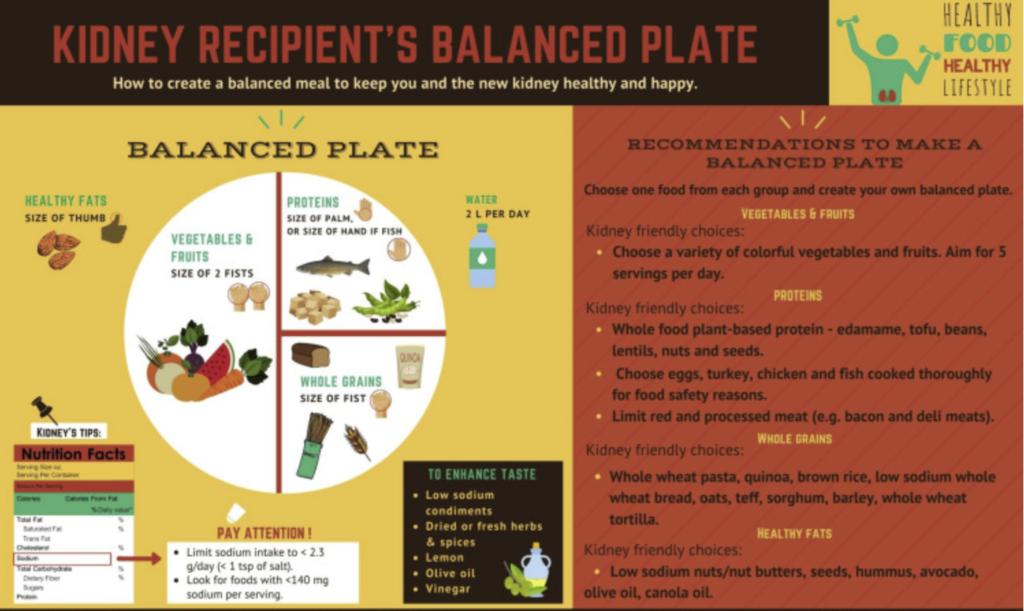Kidney Int Rep. 2021 Apr 27;6(7):1764-1774.
Authors:
Goldfarb Cyrino L, Galpern J, Moore L, Borgi L, Riella LV.
Abstract:
A healthy eating pattern has proven to lower the risk of metabolic and cardiovascular diseases. However, there are sparse dietary recommendations for kidney transplant recipients, and the ones available focus only on single nutrients intake, such as sodium, potassium, and proteins, and not on the overall eating pattern. Considering that individuals do not typically consume nutrients in isolation, but as part of a complete dietary pattern, it is challenging for the average transplanted patient to understand and implement specific dietary recommendations. Also, single-nutrient interventions demonstrate largely inconclusive effects, and it seems improbable that they could have a strong enough impact on transplant outcomes. Dietary trends such as plant-based diets, intermittent fasting, low-carb diet/keto-diet, and juicing, have gained major attention from the media. Herein, we review the potential risks and benefits of these diets in kidney transplant recipients and provide an updated dietary recommendation for this population with consideration of current nutritional trends. Overall, the Mediterranean and DASH diets have demonstrated to be the most beneficial dietary patterns to the post kidney transplant population by focusing on less meat and processed foods, while increasing the intake of fresh foods and plant-based choices. We believe that to maintain a healthy lifestyle posttransplant, patients should be educated about the scientific evidence of different diets and choose a dietary pattern that is sustainable long-term.

